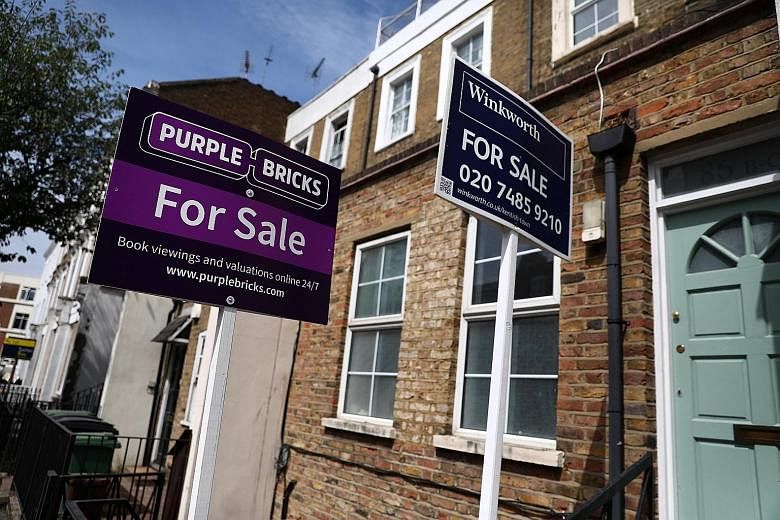For decades, purchasing a home in London was a risk-free proposition.
Insatiable demand as well as investors from around the world piling into the British capital's residential property market meant that prices always zoomed upwards, and double-digit profits could be had within a matter of months.
No longer, however. More homes are being withdrawn from the market in London than are being sold because their owners fail to get the prices they expect.
Across London, prices this year have already fallen by 4 per cent, with the prized, so-called "prime central" luxury apartments in the heart of London registering a loss of up to 11 per cent.
Substantial internal population movements as well as large inflows of migrants from overseas have boosted the number of residents in London, leading to a huge demand for housing. The city is currently home to 8.7 million inhabitants, and is projected to have 10 million by the middle of the next decade, with 13 million by the end of the century if current growth trends persist.
Yet much of London's land is subjected to strict development regulations, which means that construction never keeps up with demand.

According to the city's planners, London currently needs 50,000 new homes each year.
Fewer than half of that are being constructed, with no hope of closing the gap.
Adding to the pressure is the fact that Britain is one of the few countries imposing no restrictions on the purchase of residential property by foreigners or non-residents, turning London's property market into a global playground. According to Savills, a real estate company, up to 75 per cent of newly built properties in central London were snapped up by foreigners, with many preferring to keep their newly acquired homes empty.
However, the market is now being hit from all directions.
The first is government action in response to a popular backlash from residents who are no longer able to even rent in London. Since last year, investors buying a second home or purchasing a property with a "buy to let" objective face a punitive stamp duty rate.
On a property that costs £275,000 (S$490,000), which is the average price tag for a home outside London, stamp duty has risen from £3,750 to around £12,000. London housing prices, which are at least triple this average, attract bigger duties.
Critics dismissed this government move as a gimmick, claiming that a higher stamp duty will not deter foreigners from buying properties and, for a while, they were vindicated. The British government's stamp duty revenues shot up last year, indicating that property investors were undeterred. But the latest figures prove that the punitive tax has helped to prick the property bubble.
A much bigger impact on the London market came from the political uncertainty stemming from Britain's decision to leave the European Union.
That raises questions over the number of foreigners willing to remain in the city, and about the number of corporations which may relocate from the British capital. Demand from well-paid expatriates was often a key driver at the luxury end of the property market.
And then there is the question of the falling value of the British currency, which, while providing some attraction for new investors, also means higher long-term risk.
Foreigners trying to dispose of their London housing assets today will have to book a loss of around 15 per cent compared with last year if they convert their proceeds into any other major international currency.
With such fundamental uncertainties likely to persist at least until March 2019, when the negotiations about leaving the EU are scheduled to be concluded, a depressed London property market is likely to continue. "The prime London market has gone to sleep", concludes the latest survey of the Royal Institution of Chartered Surveyors.
Meanwhile, Britain's National Association of Estate Agents reports that only 3 per cent of homes sold throughout the country went for more than their asking price in May, the last month for which such figures are available. This suggests that the property slump observed in London may now be spreading to the rest of the United Kingdom.
Still, the market is far from facing a meltdown, since for the 87 per cent of the British population living outside the capital, housing shortages are still a way of life.
The country's population increased by 538,000 last year - the highest such figure since immediately after the end of World War II - yet only 140,000 new homes were built, with many still carrying an unaffordable price tag for first-time buyers.



